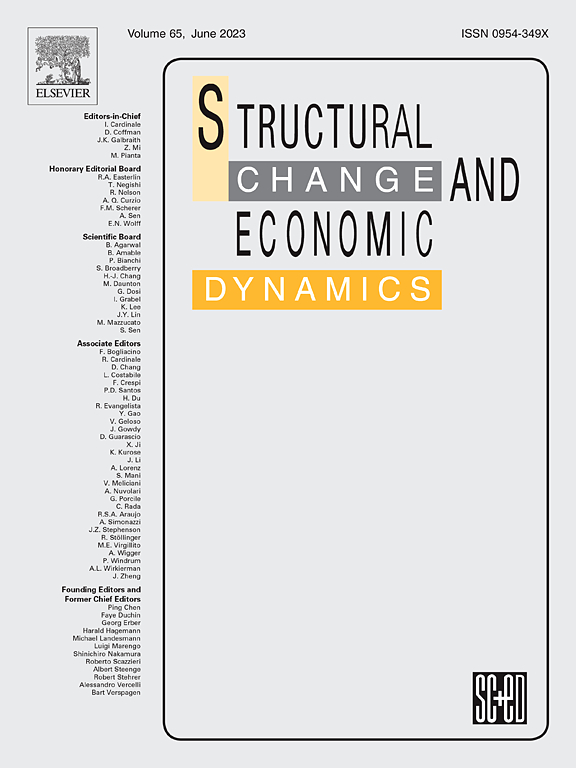Is environmental regulation an incentive or an obstacle to green innovation?
IF 5.5
2区 经济学
Q1 ECONOMICS
引用次数: 0
Abstract
To investigate the validity of the Market Failure Theory and Porter Hypothesis, this paper utilizes a hand-collected novel dataset from manufacturing firms form 2010 to 2020, presenting empirical evidence on how different types of environmental regulations influence green innovation and assessing the moderating effect of government subsidies. The conclusions demonstrate that mandatory environmental regulation reduces green innovation, whereas voluntary environmental regulation stimulates it. Government subsidies mitigate the negative influences of mandatory environmental regulation on green innovation but cannot have an impact on the positive effect of voluntary environmental regulation on green innovation. Additionally, mandatory environmental regulation affects green innovation in the long term, whereas voluntary environmental regulation yields only transient impacts confined to the immediate subsequent year. Finally, the influences of environmental regulations are heterogeneous, varying according to firm age, industry, and region. The conclusions support the Porter Hypothesis and Market Failure Theory, providing policy implications for policymakers, firm managers, and investors.
环境法规对绿色创新是激励还是阻碍?
为了验证市场失灵理论和波特假说的有效性,本文利用2010 - 2020年手工收集的制造业企业数据,提供了不同类型的环境法规如何影响绿色创新的实证证据,并评估了政府补贴的调节作用。研究结果表明,强制性环境监管抑制了绿色创新,而自愿性环境监管则促进了绿色创新。政府补贴缓解了强制性环境规制对绿色创新的负面影响,但不能影响自愿性环境规制对绿色创新的积极影响。此外,强制性环境监管对绿色创新的影响是长期的,而自愿性环境监管只产生局限于下一年的短暂影响。最后,环境规制的影响是异质的,因企业年龄、行业和地区的不同而不同。结论支持波特假说和市场失灵理论,为政策制定者、企业管理者和投资者提供政策启示。
本文章由计算机程序翻译,如有差异,请以英文原文为准。
求助全文
约1分钟内获得全文
求助全文
来源期刊

Structural Change and Economic Dynamics
ECONOMICS-
CiteScore
9.60
自引率
4.90%
发文量
159
期刊介绍:
Structural Change and Economic Dynamics publishes articles about theoretical, applied and methodological aspects of structural change in economic systems. The journal publishes work analysing dynamics and structural breaks in economic, technological, behavioural and institutional patterns.
 求助内容:
求助内容: 应助结果提醒方式:
应助结果提醒方式:


